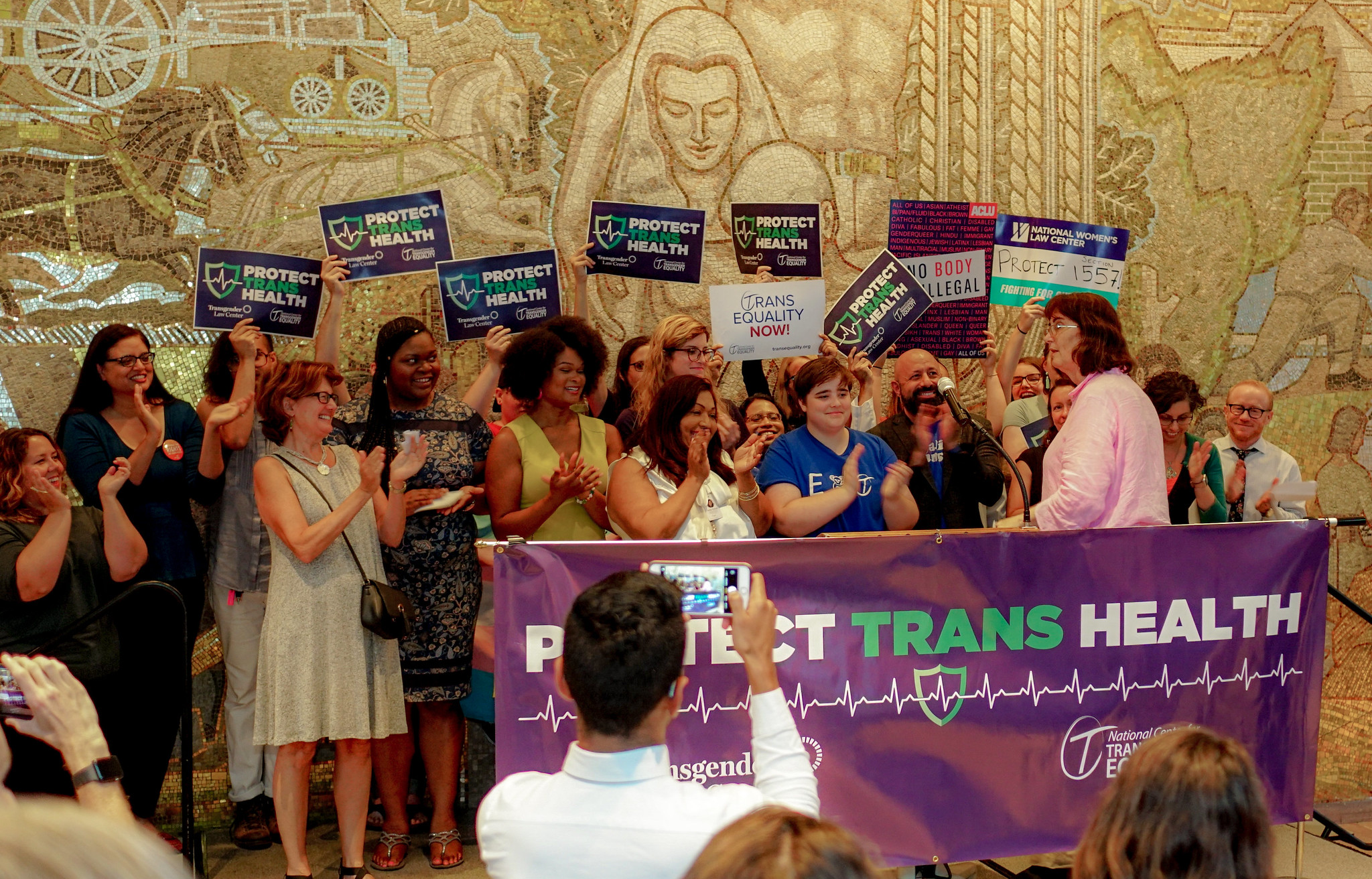A new article, published in the journal AIDS and Behavior, identifies challenges to research with marginalized communities during the COVID-19 pandemic and lockdown. The researchers, led by Jae Sevelius from the Center of Excellence for Transgender Health at the University of California, also propose strategies for supporting marginalized research and participants. The article urges institutions and funders to provide robust support to those research and research participants. They write:
“The recent outbreak of COVID-19 has caused massive disruptions in the lives of people all over the globe and has brought research focused on addressing health inequities largely to a halt. The pandemic and the related shutdown of many systems, including community-based clinics, resources, and support services, is further exacerbating the experience of marginalization for many communities.”
 Marginalized communities have been denied full participation in mainstream social, economic, and cultural activities. At the time of the current pandemic, pre-existing inequities are exacerbated, and research on how to address health inequities has also been negatively affected. In particular, research on transgender and gender diverse communities, as well as research on HIV, faces more challenges than ever.
Marginalized communities have been denied full participation in mainstream social, economic, and cultural activities. At the time of the current pandemic, pre-existing inequities are exacerbated, and research on how to address health inequities has also been negatively affected. In particular, research on transgender and gender diverse communities, as well as research on HIV, faces more challenges than ever.
The article highlights three central challenges to conducting research with marginalized communities during the pandemic: technological challenges, economic challenges, and the compromising of safety.
“We are seeing this play out in our reduced ability to sustain connection with our research participants and maintain the continuity of our research efforts,” the authors added.
First, many people from marginalized communities do not have access to technology or technological skills to participate in research under the lockdown. With the current public health policy and social distancing guidelines, most research activities are forced to be conducted online. However, research has suggested that online research and eHealth approaches are less accessible for marginalized populations such as LGBT youth, homeless people, and people of color. The researchers explain:
“They may have their phone service or internet access repeatedly interrupted due to inability to pay bills. Even among those who may have access to the internet and a smartphone or computer, due to educational marginalization, many in our communities do not have the technological skills needed to navigate online studies, sign electronic documents, or read and respond to self-administered surveys.”
The lack of access to research can lead to economic challenges due to the loss of financial resources. Even if they can participate in the study, the process of reimbursement through online systems such as Venmo or PayPal has serious institutional barriers. Also, according to the article, most people from marginalized communities may not be eligible for programs such as unemployment benefits, so the disruption of their usual support services is also causing substantial financial impact.
Lastly, many people from marginalized communities are living in conditions where they are not able to follow the COVID-19 public health and safety guidelines. For example, community members who are living in shelters or engage in survival sex work are exposed to greater risk for their physical health and mental health. Physical health may be jeopardized by sharing living spaces and, alternatively, there can be mental health consequences from isolation and the lack of available services during the lockdown.
In response to these challenges, the article authors also proposed several ways to minimize the impact of COVID-19 on marginalized communities and research. For example, they called for collaboration with community-based agencies in providing emergency services and the adaptation of telehealth interventions.
To address the barriers to technology use, they suggest conducting capacity building interventions and adjusting method for collecting research data from online surveys to phone calls, which is likely to be more accessible. They also recommend the use of mapping to identify vulnerable communities and available resources. Ongoing instrumental and mental health supports are also essential at this particular time for marginalized communities.
At the end of the article, the authors called for robust support from their institutions and funders to support their research participants and researchers. They conclude:
“There are new and intensified barriers to maintaining research continuity with marginalized populations due to the global COVID-19 pandemic. It is critical that research teams not only get creative about ways of reaching, engaging, and reimbursing our participants during this crisis, but also find ways to come together with communities to create, identify, and disseminate resources to those most in need.”
****
Sevelius, J. M., Gutierrez-Mock, L., Zamudio-Haas, S., McCree, B., Ngo, A., Jackson, A., … & Stein, E. (2020). Research with Marginalized Communities: Challenges to Continuity During the COVID-19 Pandemic. AIDS and Behavior, 1. (Link)















Never good to lose track of a specimen.
Report comment
Did I miss something in the article? Or is it really about “research” into how to reach people and stay connected?
Do they mean a phone call to bring a pie? Or a “wellness check”?
Help me out O.O.
Report comment
I can’t remember now. The mental image was of sputum samples and a lab guy covering his as-if after misplacing one. And then I remembered the first sputum cup I held for a gentleman with poor eyesight and a tremor as he by some miracle hocked a gag me warm loogie into the 1.5″ diametre cup I was holding with my eyes closed so I didn’t hurl myself. That’s about it.
And I imagine the researchers regretted not attaching tracking collars to the lab “participants” after the fact. PLUS no pie if you don’t finish your questions.
I’m so tired Sam. Anyone want to share 160 acres in the far north with me? We could each take a corner and never see each other once the cabins are built and for pie now and then when the “space madness” gets too much.
Report comment
It sounds like a plan. It was mine anyway.
Land is so cheap up north. Look on Kijiji.
I’m tired too O.O
Sometimes it’s nice to hang around others who are tired, no pressure
to keep up.
Report comment
@Sam Plover & O.O.
I am tired THREE! Great to have met you guys on here.
And O.O. you are the next Jack Kerouac. And I will be here
to remind you of that every step of the way!!!
(and Sam I haven’t gotten to know you yet, but
“Do they mean a phone call to bring a pie? Or a “wellness check”?”
the next Samuel Johnson, perchance??? Better known as DR. JOHNSON, the all-time greatest critic in English Lit. . .Dr. Johnson, I presume?
he had a wicked, albeit dry, sense of humor….
and I also like the Samuel to Samuel simpatico…
I’ll take that phone call & pie….better yet, I would like to stay ahead of having to do such, or, for that matter, getting a “wellness check”…..)
O.O:
Keep working on your book…while you work on it & edit it, imagine yourself in your cabin in the woods…the psychiatrists won’t be able to find you….they have dumbed themselves into a corner & can no longer use a compass….literally AND metaphorically…
Report comment